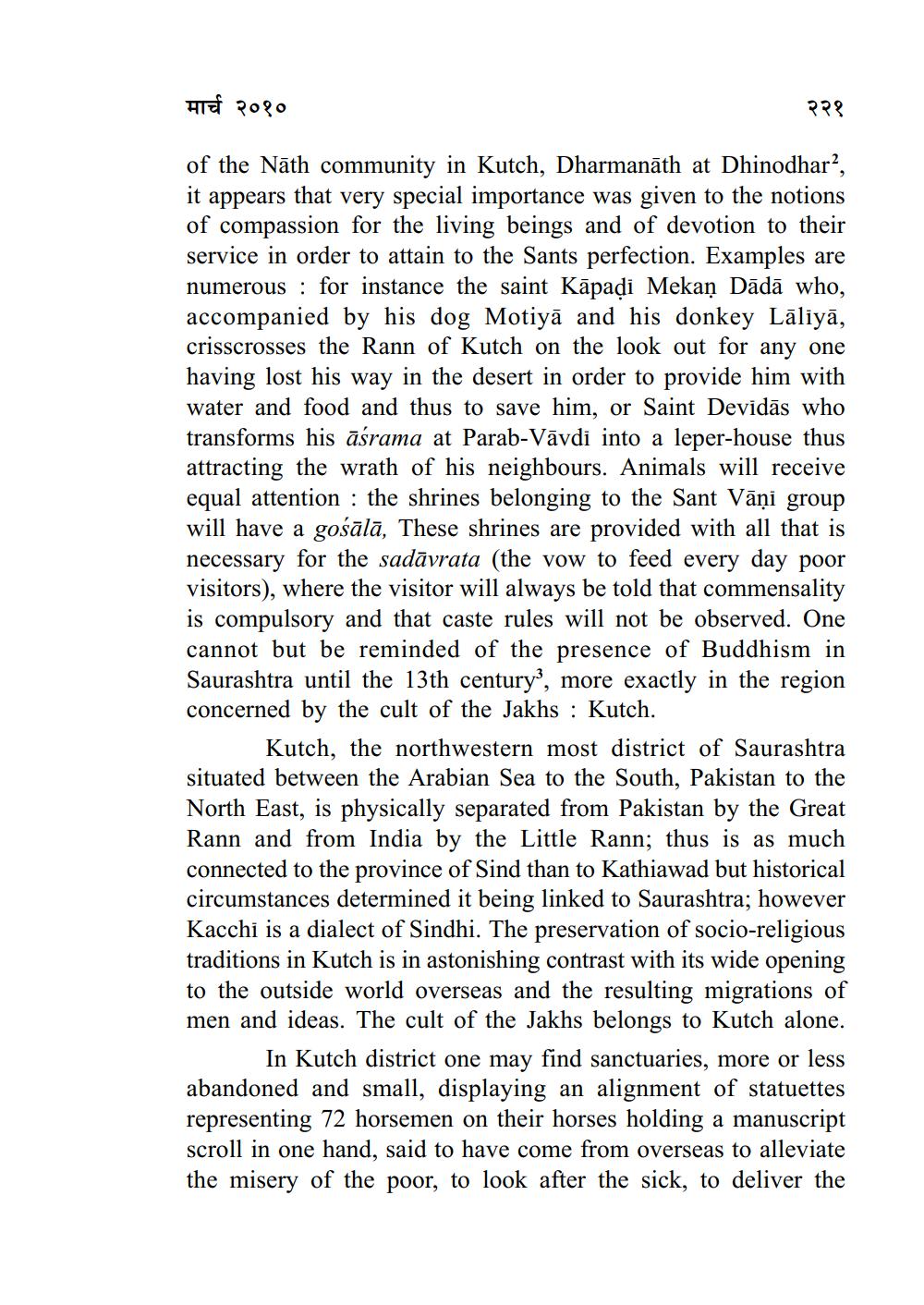________________
मार्च २०१०
२२१
of the Nāth community in Kutch, Dharmanāth at Dhinodhar”, it appears that very special importance was given to the notions of compassion for the living beings and of devotion to their service in order to attain to the Sants perfection. Examples are numerous : for instance the saint Kāpaļi Mekaņ Dādā who, accompanied by his dog Motiyā and his donkey Lāliyā, crisscrosses the Rann of Kutch on the look out for any one having lost his way in the desert in order to provide him with water and food and thus to save him, or Saint Devidās who transforms his āśrama at Parab-Vāvdi into a leper-house thus attracting the wrath of his neighbours. Animals will receive equal attention : the shrines belonging to the Sant Vāņi group will have a gośālā, These shrines are provided with all that is necessary for the sadāvrata (the vow to feed every day poor visitors), where the visitor will always be told that commensality is compulsory and that caste rules will not be observed. One cannot but be reminded of the presence of Buddhism in Saurashtra until the 13th century, more exactly in the region concerned by the cult of the Jakhs : Kutch.
Kutch, the northwestern most district of Saurashtra situated between the Arabian Sea to the South, Pakistan to the North East, is physically separated from Pakistan by the Great Rann and from India by the Little Rann; thus is as much connected to the province of Sind than to Kathiawad but historical circumstances determined it being linked to Saurashtra; however Kacchi is a dialect of Sindhi. The preservation of socio-religious traditions in Kutch is in astonishing contrast with its wide opening to the outside world overseas and the resulting migrations of men and ideas. The cult of the Jakhs belongs to Kutch alone.
In Kutch district one may find sanctuaries, more or less abandoned and small, displaying an alignment of statuettes representing 72 horsemen on their horses holding a manuscript scroll in one hand, said to have come from overseas to alleviate the misery of the poor, to look after the sick, to deliver the




